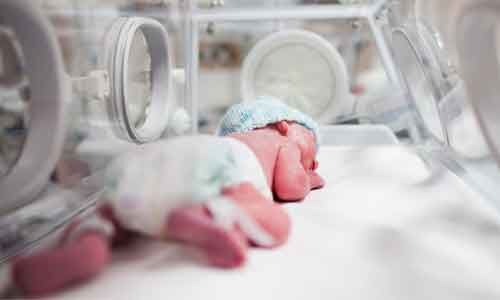- Home
- Medical news & Guidelines
- Anesthesiology
- Cardiology and CTVS
- Critical Care
- Dentistry
- Dermatology
- Diabetes and Endocrinology
- ENT
- Gastroenterology
- Medicine
- Nephrology
- Neurology
- Obstretics-Gynaecology
- Oncology
- Ophthalmology
- Orthopaedics
- Pediatrics-Neonatology
- Psychiatry
- Pulmonology
- Radiology
- Surgery
- Urology
- Laboratory Medicine
- Diet
- Nursing
- Paramedical
- Physiotherapy
- Health news
- Fact Check
- Bone Health Fact Check
- Brain Health Fact Check
- Cancer Related Fact Check
- Child Care Fact Check
- Dental and oral health fact check
- Diabetes and metabolic health fact check
- Diet and Nutrition Fact Check
- Eye and ENT Care Fact Check
- Fitness fact check
- Gut health fact check
- Heart health fact check
- Kidney health fact check
- Medical education fact check
- Men's health fact check
- Respiratory fact check
- Skin and hair care fact check
- Vaccine and Immunization fact check
- Women's health fact check
- AYUSH
- State News
- Andaman and Nicobar Islands
- Andhra Pradesh
- Arunachal Pradesh
- Assam
- Bihar
- Chandigarh
- Chattisgarh
- Dadra and Nagar Haveli
- Daman and Diu
- Delhi
- Goa
- Gujarat
- Haryana
- Himachal Pradesh
- Jammu & Kashmir
- Jharkhand
- Karnataka
- Kerala
- Ladakh
- Lakshadweep
- Madhya Pradesh
- Maharashtra
- Manipur
- Meghalaya
- Mizoram
- Nagaland
- Odisha
- Puducherry
- Punjab
- Rajasthan
- Sikkim
- Tamil Nadu
- Telangana
- Tripura
- Uttar Pradesh
- Uttrakhand
- West Bengal
- Medical Education
- Industry
Using plastic drape during PICC placement reduces hypothermia in premature babies: Study

Plastic drape shows promise in improving nursing practice by providing improved thermoregulation for premature neonates during PICC placement.
USA: A plastic drape may lower the incidence of hypothermia in premature babies, finds a recent study in the journal Advances in Neonatal Care. According to the study, the traditional use of cloth towels and blankets during the placement of a peripherally inserted central catheter (PICC) may hinder heat transfer from the assisted heating mechanisms, increasing the risk for neonatal hypothermia.
Most babies born prematurely or with health problems are quickly whisked away to the Neonatal Intensive Care Unit (NICU) where they might require assisted heating devices to regulate their temperature.
"The use of the plastic drape is a quality improvement to reduce the hypothermia rate in very low birth-weight (VLBW) neonates by replacing cloth blanket/towels with a plastic drape during PICC placement," said Huong (Kelle) Phan, clinical assistant professor at University of Houston College of Nursing. "A plastic drape shows promise in improving nursing practice by providing improved thermoregulation for premature neonates during PICC placement."
When a premature baby's body temperature drops below 36.5°C, the baby may experience cold stress, which is a cause for concern. The recommended temperature range for postnatal stabilization is between 36.5° and 37.5°C.
Phan's research project included implementing plastic drapes over three months, during 58 PICC procedures in a Level-3 NICU. A pre-/posttest was used to evaluate the impact of the intervention on hypothermia rates compared with a baseline cloth group and a concurrent cloth cohort.
"After the 3-month implementation period, the hypothermia rate for the intervention group was lower than that for the baseline cloth group (5.2% and 11.3%, respectively). Post-PICC hypothermia rates were significantly lower for the intervention group than for the concurrent cloth cohort," said Phan.
This evidence demonstrated plastic drapes reduced the hypothermia rate in the NICU for VLBW neonates during PICC placement compared with cloth blankets or towels.
"Phan's innovative nursing intervention of using the plastic drape during a PICC insertion helps some of our most vulnerable patients, those infants that must be treated in neonatal intensive care units," said Kathryn Tart, founding dean and Humana Endowed Dean's Chair in Nursing, UH College of Nursing.
Phan recommends further research to replicate findings with larger samples of PICC insertions, using a plastic drape in the operating room and other NICU procedures.
Hina Zahid Joined Medical Dialogue in 2017 with a passion to work as a Reporter. She coordinates with various national and international journals and association and covers all the stories related to Medical guidelines, Medical Journals, rare medical surgeries as well as all the updates in the medical field. Email: editorial@medicaldialogues.in. Contact no. 011-43720751
Dr Kamal Kant Kohli-MBBS, DTCD- a chest specialist with more than 30 years of practice and a flair for writing clinical articles, Dr Kamal Kant Kohli joined Medical Dialogues as a Chief Editor of Medical News. Besides writing articles, as an editor, he proofreads and verifies all the medical content published on Medical Dialogues including those coming from journals, studies,medical conferences,guidelines etc. Email: drkohli@medicaldialogues.in. Contact no. 011-43720751


